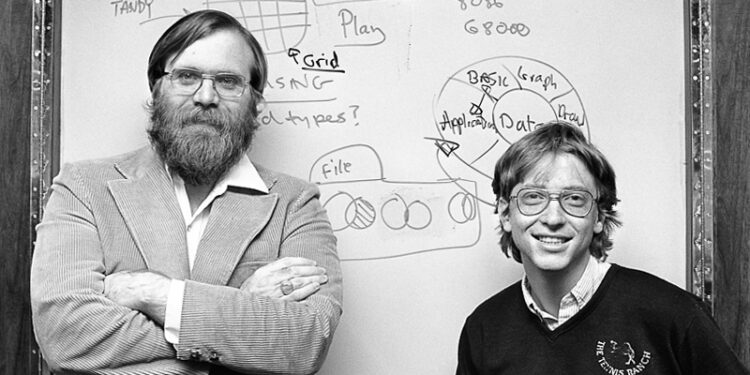Paul Allen, best known as the co-founder of Microsoft alongside Bill Gates, was a visionary technologist, investor, and philanthropist whose influence extended far beyond the world of software. His ideas and investments helped define the personal computing revolution and shaped industries ranging from music to space exploration.
Early beginnings and the birth of Microsoft
Born in Seattle in 1953, Paul Gardner Allen showed an early fascination with computers and technology. He met Bill Gates while attending Lakeside School, where the two bonded over their shared passion for programming. In 1975, the duo founded Microsoft after Allen read about the Altair 8800, one of the first personal computers. Their software for the Altair marked the beginning of the PC era.
Allen played a crucial role in shaping Microsoft’s direction, driving the company’s early focus on software as the key to personal computing. His technical insight and partnership with Gates laid the groundwork for Microsoft’s rise to dominance in the 1980s.
Beyond Microsoft: innovation and investment
After leaving Microsoft in 1983 due to health issues, Allen continued to invest in visionary projects that reflected his curiosity and belief in innovation. Through his company, Vulcan Inc., he funded ventures in technology, science, and media. He was an early investor in companies such as America Online, Charter Communications, and DreamWorks, and later focused on artificial intelligence, biosciences, and clean energy.
Allen’s fascination with space led him to co-found Stratolaunch Systems, a company aimed at revolutionising access to orbit through air-launched rockets. His investments weren’t limited to profit: they were often rooted in advancing human knowledge and exploration.
A life of culture and philanthropy
Paul Allen’s interests also extended deeply into culture and the arts. He founded the Museum of Pop Culture (MoPOP) in Seattle, a striking Frank Gehry-designed building that celebrates creativity in music, film, and gaming. He was a passionate art collector and sports enthusiast, owning both the Seattle Seahawks (NFL) and the Portland Trail Blazers (NBA).
His philanthropic efforts were vast and varied. Allen donated more than $2 billion during his lifetime, funding brain science research, wildlife conservation, and education initiatives. Through the Allen Institute for Brain Science and later the Allen Institute for Artificial Intelligence, he aimed to push the boundaries of human understanding.
Enduring legacy
Paul Allen passed away in 2018 at the age of 65, but his legacy continues to influence science, technology, and culture. His vision extended beyond the creation of wealth; it was about expanding what humanity could achieve with imagination and technology.
Allen’s life remains a testament to curiosity, creativity, and the belief that technology can serve as a force for progress and discovery — values that continue to inspire innovators across the world.
Newshub Editorial in North America – 15 October 2025



Recent Comments